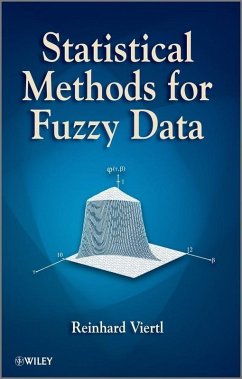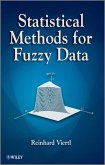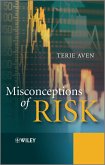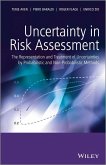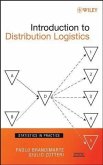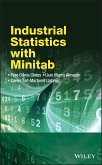Statistical data are not always precise numbers, or vectors, or categories. Real data are frequently what is called fuzzy. Examples where this fuzziness is obvious are quality of life data, environmental, biological, medical, sociological and economics data. Also the results of measurements can be best described by using fuzzy numbers and fuzzy vectors respectively. Statistical analysis methods have to be adapted for the analysis of fuzzy data. In this book, the foundations of the description of fuzzy data are explained, including methods on how to obtain the characterizing function of fuzzy measurement results. Furthermore, statistical methods are then generalized to the analysis of fuzzy data and fuzzy a-priori information. Key Features: * Provides basic methods for the mathematical description of fuzzy data, as well as statistical methods that can be used to analyze fuzzy data. * Describes methods of increasing importance with applications in areas such as environmental statistics and social science. * Complements the theory with exercises and solutions and is illustrated throughout with diagrams and examples. * Explores areas such quantitative description of data uncertainty and mathematical description of fuzzy data. This work is aimed at statisticians working with fuzzy logic, engineering statisticians, finance researchers, and environmental statisticians. It is written for readers who are familiar with elementary stochastic models and basic statistical methods.
Dieser Download kann aus rechtlichen Gründen nur mit Rechnungsadresse in A, B, BG, CY, CZ, D, DK, EW, E, FIN, F, GR, HR, H, IRL, I, LT, L, LR, M, NL, PL, P, R, S, SLO, SK ausgeliefert werden.
Hinweis: Dieser Artikel kann nur an eine deutsche Lieferadresse ausgeliefert werden.

